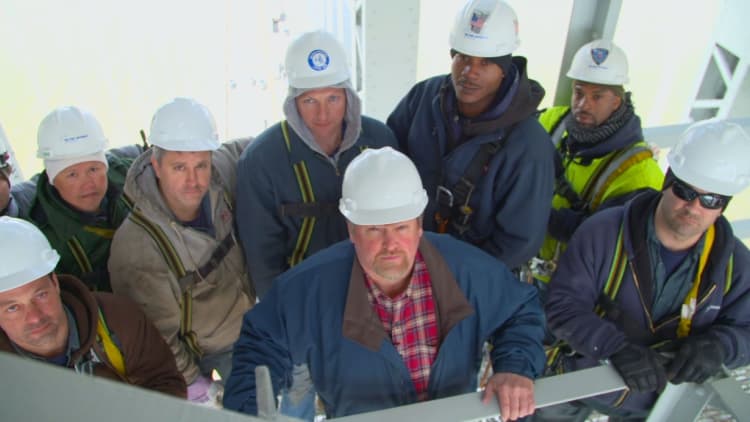Young professionals are constantly told about the importance of networking. They're told to go to job fairs, ask for coffee meetings, mingle at work-related cocktail events, and attend panels.
What's less clear is how and when (and if) these networking efforts really pay off. Many people dislike networking and say it feels awkward, and for others it can be a source of anxiety. And according to Glamour editor-in-chief Samantha Barry, a better approach is to stop networking entirely, and focus instead on forming relationships.
Barry, who is a member of CNBC's Financial Wellness Advisory Council, says she tries never to even use the word "networks" and to focus instead on building relationships in a professional context.
"Networking can sometimes come across as a one-sided and negative word," she tells CNBC Make It. "I prefer 'relationships' because that's what I see them as — professional friendships. And they are beneficial and positive for all parties."
Barry isn't the only one who feels this way. CNBC contributor Suzy Welch says that the standard, transactional approach to networking, where you meet, talk and then exchange business cards, is usually not the most effective. Instead, Welch recommends taking a long-term approach and working to build a full, authentic relationship.
"Human beings help friends," she says, "not 'contacts.'"
Here's how to shake up your approach to making professional connections:
1. Connect with your peers
Rather than focusing only on networking with those who outrank you, Barry says that it's important to consider everyone within your profession as valuable contacts. "Making professional relationships with not just those in higher positions but with your peers and those coming up below you is very worthwhile," she says.
For Barry, many of the relationships she says she made were formed in the workplace, rather than at a formal cocktail hour or conference.
"Some of the people that have been my bosses in the past, I still have to go to for advice all the time," Barry says. "Also, it's the people I grew up with in the newsroom in my 20s. Many of them are now working at big companies, like Facebook, or in lots of different industries and I still go to them for advice. So, your peers can be really helpful."
2. Bring reinforcements
Should you find yourself in a situation where you feel unsure of how to approach a formal networking event or opportunity, Barry has a simple suggestion.
"Bring a friend!" she says. "When talking with someone, be sure to ask them personal as well as professional questions, be curious and don't go straight in with an ask. Get to know people."
3. Be yourself
If you walk and talk like everyone else in the room, there's a good chance you won't be remembered. The key to being natural and memorable is to act like the best version of you when in a networking situation. That might mean forgoing the traditional networking dance, engaging in small talk before exchanging business cards.
In fact, according to Welch, that standard approach to networking "actually hurts your career, and you should replace it immediately."
Instead, the next time you attend a work event, follow Barry's advice and consider approaching a peer you don't know very well. Not only could you end up with a meaningful work contact, but if you are lucky, you could also end up with a genuine new friendship.
Don't miss: The average tax refund this year is nearly $3,000—here are the smartest ways to spend it
Like this story? Subscribe to CNBC Make It on YouTube!



